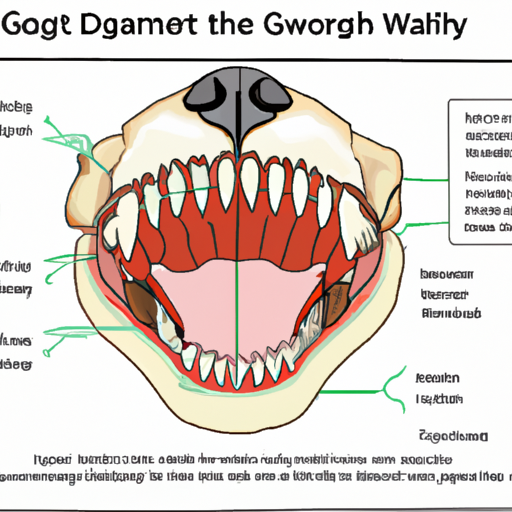Keeping track of your pet’s health is a top priority, and that includes their dental health. In this comprehensive guide, we will answer the question, “how long do dogs’ teeth?” We’ll cover puppy teething stages, adult dog dental health, and everything in between.
Understanding Your Dog’s Dental Anatomy
Just like humans, dogs too have baby teeth and permanent adult teeth. Typically, a puppy will have 28 deciduous (baby) teeth, and an adult dog will have 42 permanent teeth.
- Incisors: These are the small teeth at the front of the mouth, used for nibbling and grooming.
- Canines: These are the long, sharp teeth on the sides, used for tearing food.
- Premolars: Behind the canines, these are used for slicing food.
- Molars: These are at the back of the mouth, used for grinding food.
The Puppy Teething Timeline
- Birth to 2 weeks: Puppies are born without teeth.
- 2 to 4 weeks: The first baby teeth start to appear.
- 4 to 6 weeks: All 28 baby teeth have usually erupted.
- 3 to 6 months: Baby teeth start to fall out, replaced by adult teeth.
Adult Dog Dental Health
By the time your dog is 7 months old, all adult teeth should be in place. But remember, maintaining these teeth is vital for your dog’s health.
- Daily brushing: Use a dog-specific toothpaste and brush.
- Regular vet checks: Your vet can identify and treat dental issues early.
- Healthy diet and chew toys: These can help keep your dog’s teeth clean.
Common Dental Problems in Dogs
Dogs can suffer from various dental issues, some of which include:
- Dental plaque and tartar
- Gum disease
- Tooth decay
- Tooth loss
Should you notice any changes in your dog’s eating habits, or signs of discomfort, consult your vet immediately.
Teeth Cleaning Tips for Dogs
Keeping your dog’s teeth clean can prevent many dental issues. Here are some tips:
- Start early: Introduce dental care when your dog is young.
- Use pet-friendly products: Never use human toothpaste for your dog.
- Be gentle: Brush with soft strokes to avoid hurting your dog.
The Role of Diet in Dog Dental Health
A balanced diet can significantly contribute to your dog’s dental health.
- Dry food: Chewing kibble can help reduce plaque.
- Dental chews: These are designed to clean your dog’s teeth as they chew.
- Raw bones: These can help scrape off plaque and tartar.
Always consult your vet before making any changes to your dog’s diet.
Understanding Dog Dental Treatments
Sometimes, despite our best efforts, dogs may need dental treatments. These could range from simple cleanings to extractions. Always discuss with your vet the best course of treatment for your pet.
FAQ Section
1. When do puppies lose their baby teeth?
Puppies typically lose their baby teeth between 3 to 6 months of age.
2. How can I tell if my dog has dental issues?
Signs of dental issues can include bad breath, difficulty eating, excessive drooling, or visible tartar on the teeth.
3. Can I brush my dog’s teeth with human toothpaste?
No, human toothpaste can be harmful to dogs. Always use a dog-specific toothpaste.
4. How often should I get my dog’s teeth professionally cleaned?
This depends on your dog’s overall dental health. However, most vets recommend annual cleanings.
Understanding your dog’s dental health is crucial for their overall well-being. Remember, a healthy dog is a happy dog.



